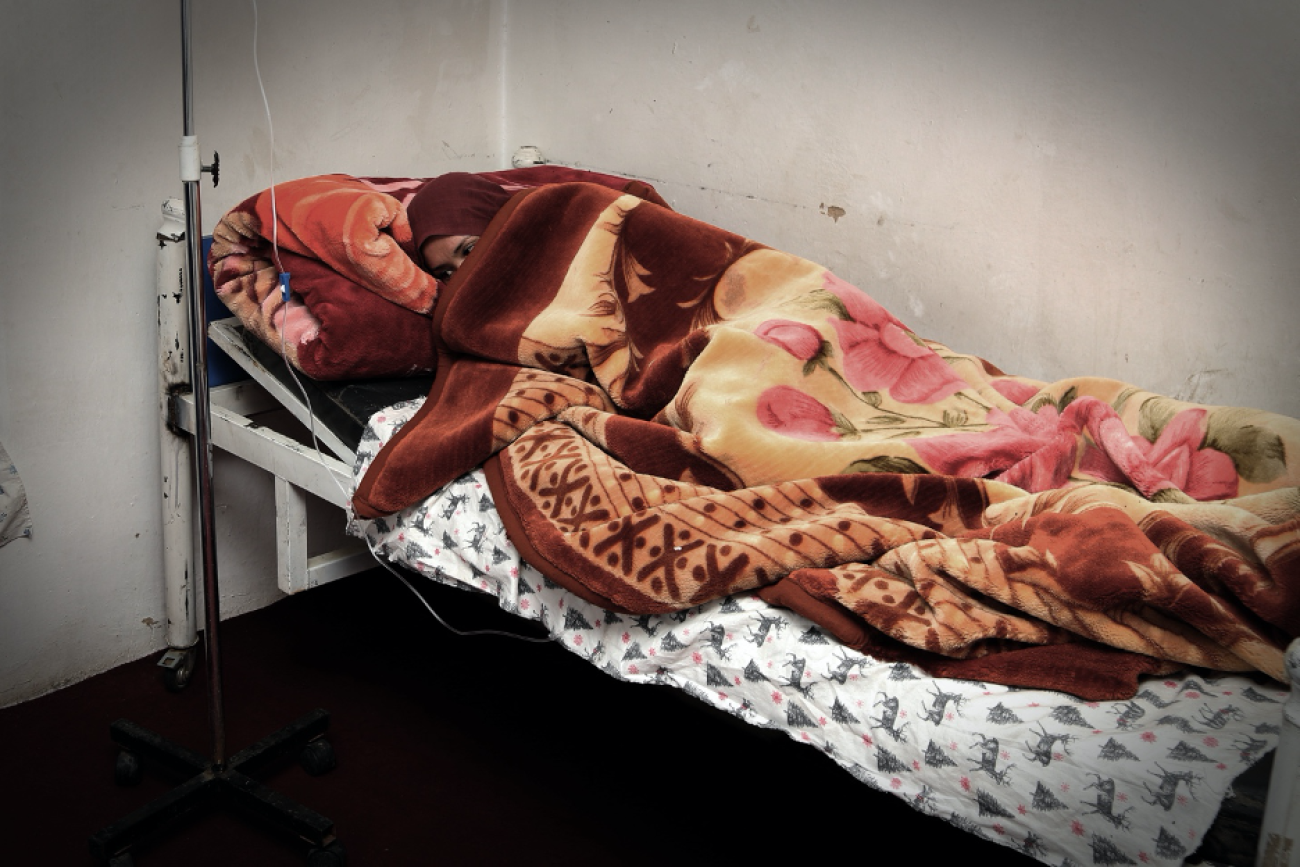A Family Steps-Up for their Daughter, a Gender-Based Violence Survivor

For the first time Fatima witnessed her father standing up for her, saying, “We will do what Fatima wishes. For years we stood by while my daughter was abused."
Fatima (name changed) is a 20-year-old woman and a victim of a forced marriage in the district of Kohistan in Kapisa province. She was forced into wedlock two years ago to an older man. Fatima was no longer permitted to attend school and faced constant physical and emotional abuse. Four months ago, as COVID-19 exacerbated the prevalence of domestic violence and poverty of families throughout Afghanistan, Fatima suffered a severe beating that resulted in trauma to her left eye and her nose.
The injuries at this time were so severe that Fatima turned to the police for assistance. However, they were unable to intervene, and the abuse Fatima suffered when her husband discovered she had sought help resulted in a fractured leg. For 15 days Fatima suffered the pain of her broken bone and was unable to move of walk. The injury became so serious that Fatima was eventually transferred to the Kapisa Public Hospital surgical ward. There, staff were able to identify Fatima as a victim of Gender-Based Violence (GBV) and begin providing her the support she had been denied until then.
Fatima was referred to the Family Protection Center (FPC), located in the hospital, which provided her with medical, psychosocial, and legal counsel. The FPC in turn referred Fatima to the Family Response Unit (FRU) situated in the police precinct that manage legal matters pertaining to GBV cases. The FRU was also able to refer Fatima to a shelter while her case was being examined. With the support of the FRU, her husband was arrested pending investigation.
For the first time, Fatima’s voice was being heard. Her mental health improved as well, and the suicidal ideations and fears began to abate. The FPC managed the consultative meetings held with Fatima, the FRU, Fatima’s family and in-laws, Department of Women’s Affairs, and Justice Department. For the first time Fatima witnessed her father standing up for her, saying, “We will do what Fatima wishes. For years we stood by while my daughter was abused. No more.”
Fatima came to the decision that she wished for a legal divorce from her abusive husband. With a new outlook on life, Fatima returned to her parent’s home with her children. Since her return home, she met, became engaged to, and married a young carpenter who is supportive of Fatima’s dreams. She has returned to school and is happy to be in a loving marriage where she no longer fears daily violence from her spouse.
Gender- based violence is pervasive in Afghanistan and women and girls are at the extreme end of the social ladder. Of women ages 15-49 who have ever been married, 56% (DHS 2015) experience physical and/or sexual violence. With the lock-down and curfews due to COVID-19 in major cities, tensions in households increased and fueled domestic violence and other forms of GBV, making it harder for women and girls to reach the FPCs. During COVID-19 the FPCs in all provinces remained operational to provide live-saving services.







